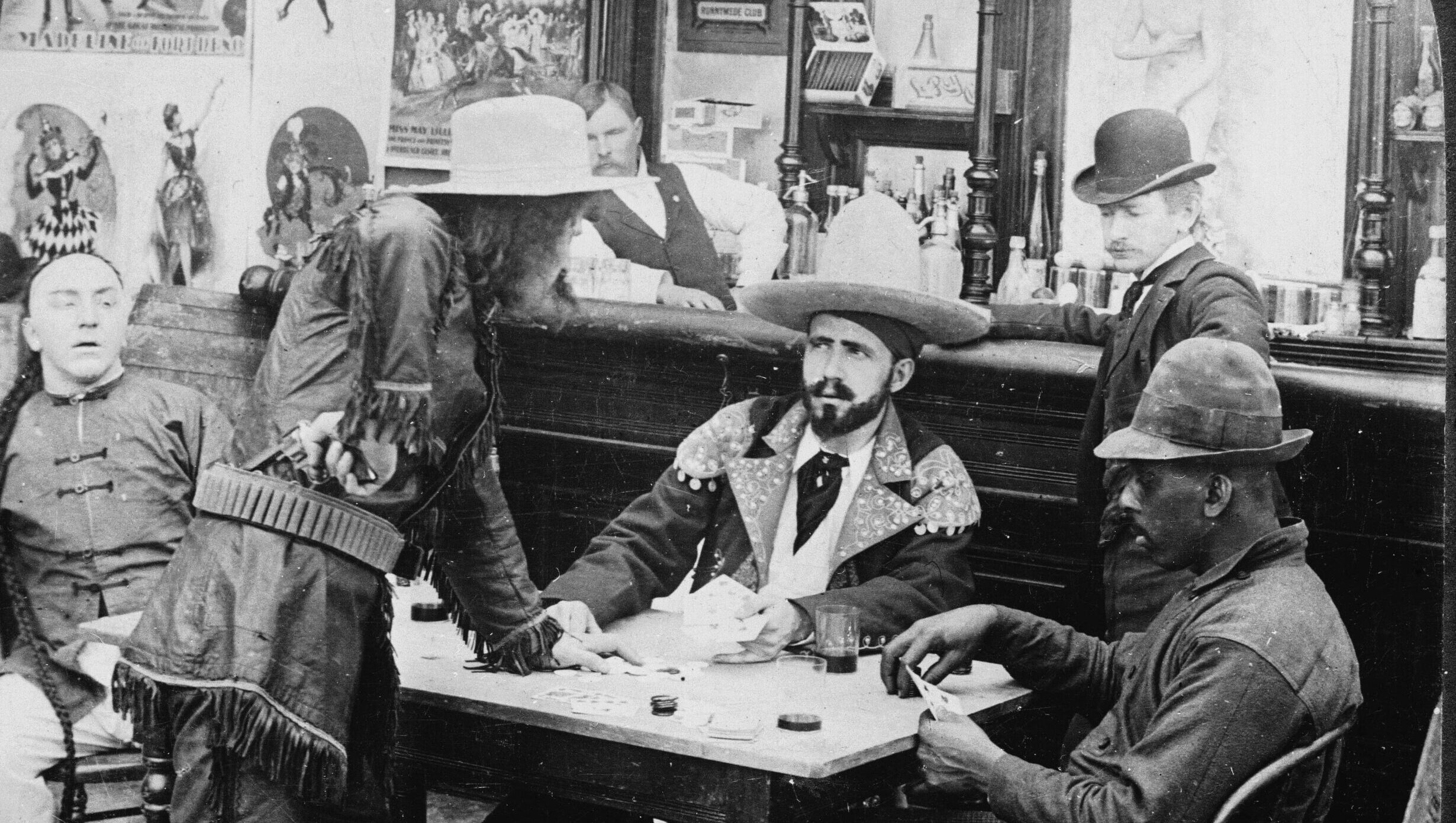A Revolution of the Mind:
Radical Enlightenment and the Intellectual Origins of Modern Democracy
by Jonathan Israel
(Princeton, NJ: Princeton University Press, 2010)
The Enlightenment is a tried battleground. Countless wars over the meaning of modernity have been waged across it. Nineteenth- and twentieth-century liberals, socialists, utopians, and positivists essentially endorsed the Enlightenment’s project, which, according to sympathetic historian Peter Gay, joined rationality, reformism, freedom, cosmopolitanism, and progress in a quest for a new human order. On the other end of the political spectrum, reactionaries and conservatives judged the Enlightenment as ahistorical and antitraditional, and believed it to be the ideological source of the godless French Revolution, Napoleon’s hegemonic France, socialism, and much more.
Liberal-conservative Alexis de Tocque-ville interpreted the French Revolution as a consequence of the frightful convergence of democracy and the growing centralization of the ancien régime. Bifurcating the ideological inheritance of the Enlightenment, historian Jacob Talmon (d. 1980) argued that there emerged concurrently in the eighteenth century two opposing trends: liberal democracy and totalitarian democracy. The latter tyrannically assumed “the sole and exclusive truth of politics,” the power of reason to survey all of human existence, and the right to remake life and society. It succumbed to “totalitarian messianism.”
Contradicting both Gay and Talmon and critics on both sides of the debate, intellectual historian Jonathan Israel has devoted his scholarly career to declaring the existence of a second, distinct, and positive Enlightenment. He calls it the Radical Enlightenment. Since he has elaborated this thesis in two imposing prior volumes of nine hundred pages, and has promised an elephantine third, Israel’s two-hundred-page summary, A Revolution of the Mind: Radical Enlightenment and the Intellectual Origins of Modern Democracy, comes, if only for the sake of brevity, as a godsend.
Defining the Radical Enlightenment as a “revolution of the mind,” he judges it “one of the greatest and most decisive shifts in the history of humanity.” He gives this mind that appears in full bloom in the 1760s and 1770s a long and pure lineage, an intellectual genealogy. He declares its founding father to be Dutch philosopher, Jew, and independent thinker Baruch de Spinoza (1632–77), and he finds that its primary ancestral lines descended through Dutch and German families rather than renowned English, Scottish, and French families.
Israel writes with filial piety of Spinoza as a new Moses. Spinoza infallibly fused matter and spirit, body and soul, into one substance. This freed Spinoza of contradictions and inherent confusions that characterize the thought of those who believe in a transcendent God and history. And specifically in contrast to those of Descartes, Hobbes, and Bayle (three long-esteemed and presumed-enlightened patriarchs), Spinoza’s principles, Israel asserts, were “more resistant to being manipulated by religious authorities, powerful oligarchies, and dictatorship, and more democratic, libertarian, and egalitarian.”
Spinoza’s principles, according to Israel’s intellectual genealogy, moved cohesively and singularly through “the spirit” of Europe. They did not move as part of sensibility or a worldview but stood as a set of identifiable propositions forming a clear, distinct, and correct mind. Spinoza’s principles proceeded (by text and illumination) across history, declaring—wherever they became articulate—freedom, equality, and fraternity while fervently, and at the cost of persecution, denouncing dysfunctional, inconsistent, and arbitrary religious and political institutions. In all theaters of thought (economic, social, political, and international), which Israel cogently surveys, Spinoza’s principles consistently called for secularism and democracy, as well as for the associated principles of freedom, egalitarianism, rationalism, internationalism, and, if not absolute pacifism, a cosmopolitanism dedicated, in the words of lesser-known thinker Cerisier, “to have no other fatherland than the universe, no other friends than truth and justice.”
The unity and singularity of these radical views formed, in Israel’s interpretation, a moral category that demanded implementation and thus revolution. Monarchy, aristocracy, and church authorities, with their vested interests, had to be overthrown. At stake—here Israel, who has argued in the guise of a philosopher like Descartes and a moralist like Kant, now turns into a metahistorian like Hegel—was “the wider battle between radical and moderate thought, between the visions of a time-honored, God-ordained, providential order, on the one hand, and monistic, Spinozistic systems anchored in representative democracy and egalitarianism, on the other.”
Marching past traditional thought and present ideologies, Israel constructs a chaste philosophy, unswerving ethics, and what he takes to be a set of apodictic political axioms. Events, forces, sensibilities, complexities, and fashions do not contaminate, dilute, or distort his radical mind. Despite the presence of passions, zeal, and chiliastic impulses, the radical mind true to itself beacons a new human port across three centuries, from Spinoza to the recent revival of democracy in Eastern Europe. Conducting the history of ideas as if it were about the literal and uncorrupted transmission of truth and mind, Israel credentials a new set of contenders and decertifies long-standing contenders. His insightful and long list of lesser lights from the seventeenth and eighteenth centuries startles the reader, shows prodigious scholarship, and buttresses his argument by the breadth of citation of largely unknown or unstudied thinkers. The severity of his purge creates the novelty of his thesis. The purification of the radical mind gives Israel’s historical endeavor an ahistorical feel. Of course, his list includes such predictable Enlightenment luminaries as the Frenchmen Holbach, Diderot, Hélvetius, Condorcet; the American Paine; and such German beacons as Lessing and Adam Weishaupt, founder of the Illuminati, whose membership included Herder and Goethe and whose end was world reform based on philosophical reason, freedom, and equality.
As revealing as are those whom Israel incorporates into the Radical Enlightenment, so also are those whom he excludes. Striking what I consider a Manichean division between the Radical Enlightenment and “the complicit traditional Enlightenment,” Israel expels those tainted in the least way by either believing in Judaism and Christianity, showing tolerance for church and monarchy, or compromising with any institution that limits freedom or diminishes equality. In the name of these wrongs, he evicts from the radical community such traditional dignitaries as the philosopher Kant, the critic Voltaire, the populist Rousseau, the skeptic Hume, the free-market proponent Smith, and other Scottish thinkers and moralists. Israel contends that tolerance of slavery (a practice first repudiated and fundamentally resisted by Christians) impeaches the radical credentials of the American Revolution.
The severity of Israel’s purge creates the novelty of his thesis and subjects his approach to the charge of being ahistorical. His “radicals” form a kind of mind unto themselves and are detached from a common community of opinion. They do share an overall communion within an epoch when philosophers, monarchs, and republicans committed themselves on an unprecedented scale to plans and projects for the reform of agriculture, the crafts, economics, and government itself. Israel likewise does not place their credo in what W. W. Palmer called the Age of Democratic Revolutions. This further severs any connection of such thinkers as Diderot, Hélvetius, and the atheist Baron von Holbach of the 1760s and 1770s from the French Revolution’s statism, antireligious campaigns, and Time of Terror.
Israel correctly defines the history of the Radical Enlightenment not by imputed consequences but by its real origins and clear development. Nevertheless, his historical creation requires a severe historiographic operation. Israel transplants the true body of the Radical Enlightenment from the eighteenth century and repositions it, in truth and vitality, in the seventeenth-century intellectual culture, as a critic of Israel’s early work, Jeremy Caradonna, points out. In this manner, Israel stitches the credentials of the Radical Enlightenment to the revolutionary “truth” of the Scientific Revolution and gives it form around the succession of conflicts between political sources, religious sources, and competing philosophical systems—Cartesianism, Newtonianism, Leibnizian-Wolffism, and the triumphant Spinozism. He finally grafts his emergent radical mind to the early radicalism of the contesting Low Countries, his historical specialty.
With this as his chosen starting point, Israel ignores a more complex and profound history of freedom, the one that Lord Acton always intended but never wrote. That history depends on Christian and Jewish conceptions of God, historical revelation, soul, conscience, and person; on medieval philosophy, law, and divisions of power; and on the Reformation’s articulation of the rights of conscience. Likewise, Israel omits any identification between the origin of freedom and tolerance’s cause, Renaissance civic humanism, and sixteenth-century libertarian thought and its search for religious neutrality.
Israel’s approach, as spelled out in brief in his Revolution of the Mind, raises elemental questions about his conception and use of the history of ideas. At many points in his narrative he treats ideas as an autonomous realm, entirely separate from the culture and society of a particular time. He regularly confounds in the word ideas metaphysical arguments, opinions about facts, moral duties, practical judgments, and political ideology as if they were one.
Beyond this, Israel never scrutinizes the Radical Enlightenment as a creation of metaphors and myths. He holds secularism, liberty, equality, and cosmopolitanism as constants. Unlike the critical inquiry found in American historian Carl Becker’s 1932 classic The Heavenly City of Eighteenth-Century Philosophers, Israel’s argument does not interrogate the foundational ideas and values of the Enlightenment. He does not ask how his Radical Enlightenment rested on a single age’s beliefs about reason, reform, education, and progress; how it existed by virtue of a faith that human nature could be overcome; and how it uniquely hoped that the drama of history—all that is always held in question—could be resolved into another Heavenly City. Perhaps inspired by contemporary Europe’s prosperity, democracy, unity, and peace—unquestionably great modern achievements—Israel’s exceptionalist narrative has taken the side of those who believe that humanity can transcend divisions and contradictions of every order and overcome the revealing, unpredictable, and—yes—tragic course of history. ♦
Joseph Amato is professor emeritus of history at Southwest State University. His most recent book is Jacob’s Well: A Case for Rethinking Family History.














